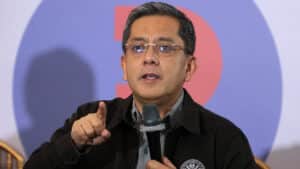The Philippine economy is at risk of overheating, the World Bank said Monday, but this could be remedied by attracting more productive investments in manufacturing as well as skills development.
In a statement, the Washington-based multilateral lender noted that the Philippines was among the three countries that posted the fastest gross domestic product (GDP) growth in the East Asia and Pacific region last year.
“The Philippine economy will remain strong, projected to grow at an annual rate of 6.7 percent in both 2018 and 2019. The economy is currently growing at its potential, making productive investment in physical and human capital essential so that the economy can continue to grow along its current trajectory,” the World Bank said.
However, it flagged several local and external risks, including overheating.
“There are several domestic risks facing the Philippines, including increasing inflation and an overheating of the economy as well as high fiscal deficits. External risks consist of greater policy uncertainty related to growing trade protectionism and increasingly inward-looking sentiments in several advanced and emerging economies, and potential market volatility from faster-than-expected US Federal Reserve rate normalization,” said Birgit Hansl, World Bank lead economist and program leader for equitable growth, finance and institutions for Brunei, Malaysia, Philippines and Thailand.
In its April 2018 “Philippines Economic Update: Investing in the Future” report, the World Bank noted that “the economy is currently growing at its potential rate, and the average capacity utilization in the manufacturing industry remains high, with all major industries operating at near full capacity.”
Unemployment also reached record lows in recent years, signaling less spare labor capacity, although underemployment remains high, the World Bank added.
“In an environment of increasing fiscal spending and continued high credit growth, the risk of the economy overheating is increasing,” according to the World Bank.
It said investment in both assets and human capital was urgently needed to increase the economy’s productive capacity. —BEN O. DE VERA


